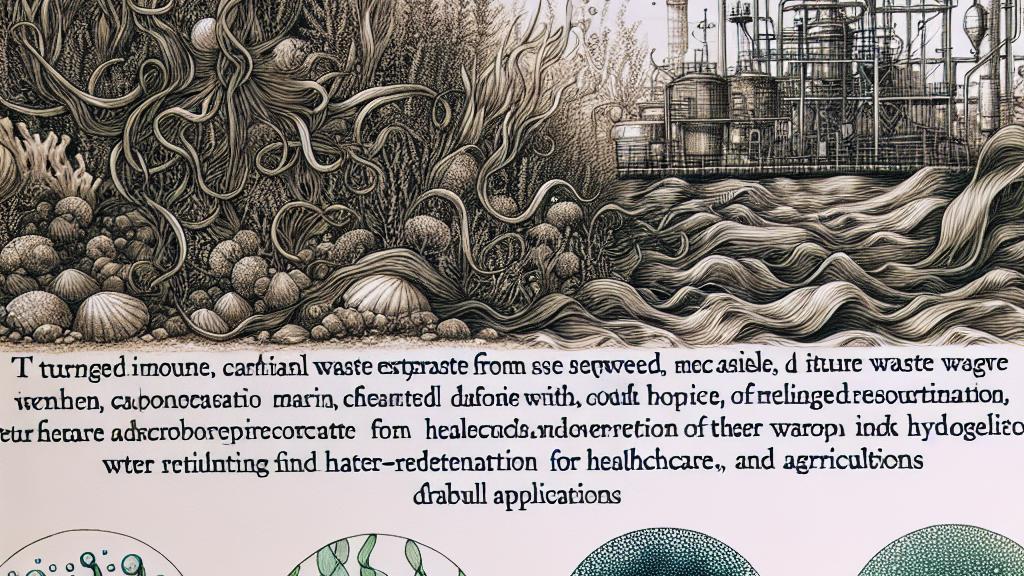Innovative Hydrogel Development from Marine Waste and Carbonated Water
Overview
- Transforms marine waste into valuable hydrogels, showcasing sustainable practices.
- Utilizes CO2 as a critical catalyst for the hydrogel formation process, enhancing safety.
- Addresses marine pollution while advancing medical biotechnology.

The Fascinating Science Behind Hydrogels
Hydrogels are indeed remarkable materials; they can absorb and retain astonishing amounts of water, making them essential in a wide range of applications—from wound dressings in medicine to soil moisture retention in agriculture. Recently, scientists from the Tokyo University of Science in Japan have pioneered an exciting new method that utilizes marine waste, particularly alginate extracted from brown seaweed, to create these hydrogels by harnessing carbon dioxide (CO2) derived from carbonated water. This innovative technique not only mitigates waste but also eliminates the need for harsh acidic agents that could compromise the safety of the final product. It's almost poetic, isn't it? We can turn ocean waste into valuable resources that contribute positively to health and wellness.
Exploring CO2's Crucial Role in Hydrogel Properties
What truly sets this research apart is the essential function of CO2 in shaping the characteristics of the hydrogels. During gelation, CO2 acts as an acid, facilitating the crosslinking of alginate chains. However, the fascinating twist lies in how the speed of CO2 release can significantly alter the hydrogels’ mechanical properties. For example, one experiment showed that samples kept in a Petri dish released CO2 gradually, leading to robust and flexible structures, while those on a wire mesh released CO2 much faster, resulting in weaker gel formations. This intricate interplay is vital for applications like tissue engineering, where the balance of strength and flexibility can determine the success of healing processes. It’s this nuance of CO2 behavior that opens exciting avenues for future research and implementation.
A Sustainable Future: Merging Environmental Responsibility with Medical Innovation
The implications of this groundbreaking research extend beyond simple innovation; they resonate with our collective responsibility to the planet. Transforming marine waste into functional hydrogels does more than reduce pollution—it offers promising applications in the medical field. These hydrogels can function as scaffolds in tissue engineering, fostering ideal conditions for wound healing by maintaining a moist environment critical for recovery. Moreover, as we increasingly seek sustainable alternatives, replacing traditional synthetic hydrogels with those crafted from alginate not only alleviates environmental impact but also supports a circular economy. Emphasizing the harmony between technological advancement and ecological stewardship reveals a bright pathway, making this research not just a step forward in science, but a leap towards a more sustainable and health-conscious future.

Loading...